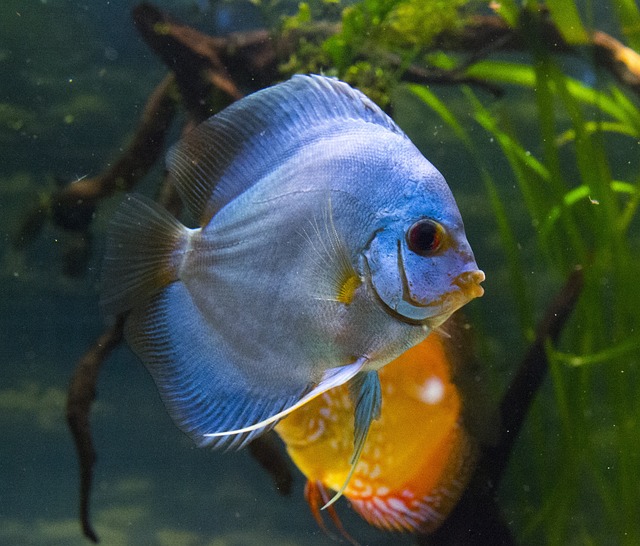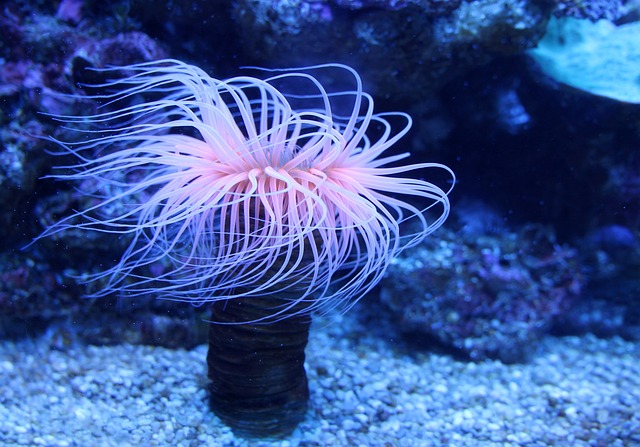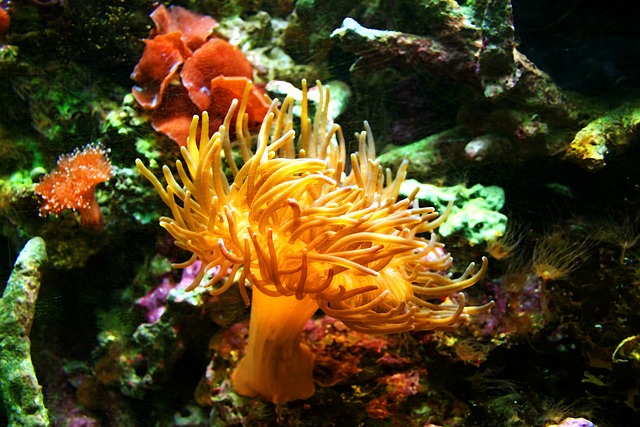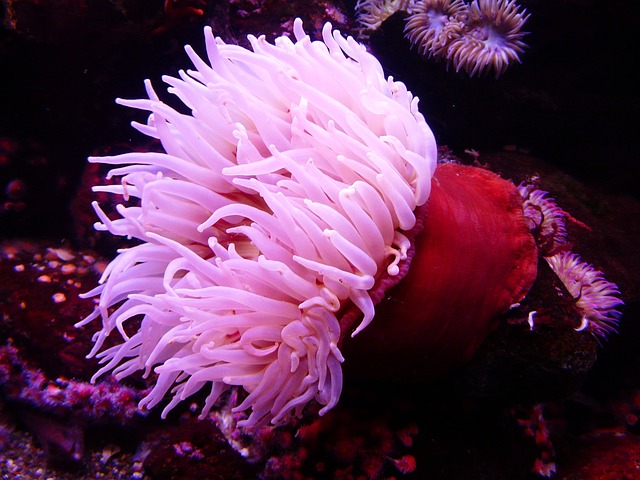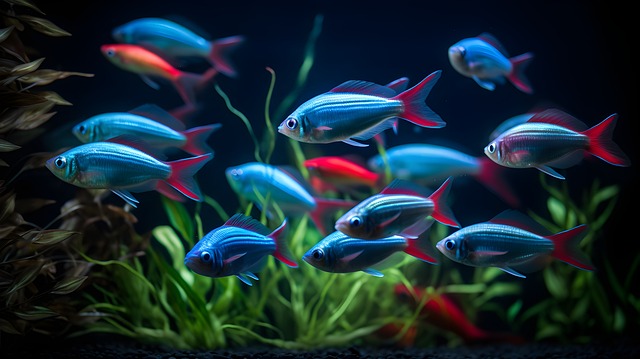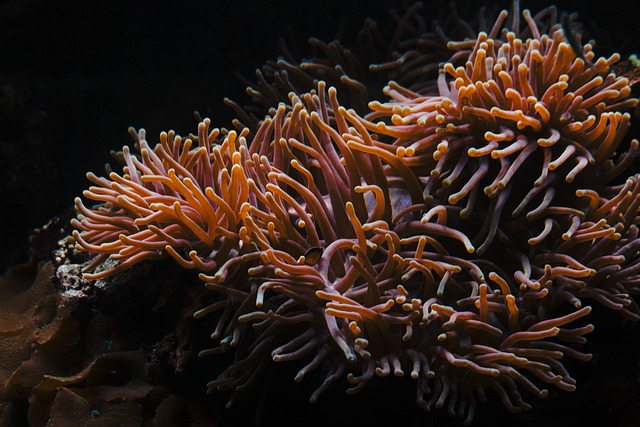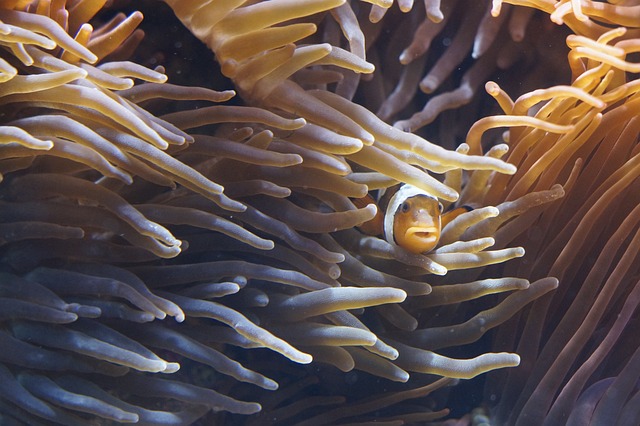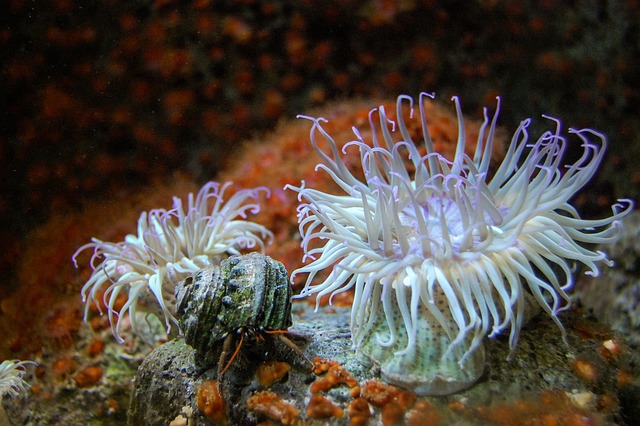Discus fish are known for their striking colors and unique personalities, making them a popular choice for aquarium enthusiasts. However, when it comes to keeping discus fish, it’s important to consider the number of fish and the size of the tank.
Overcrowding can lead to stress, aggression, and even disease among fish, while a tank that is too small can limit their growth and overall health.
To ensure the well-being of discus fish, experts recommend a maximum of two adult discus per 30 gallons of water.
This allows for enough space for each fish to establish their own territory and reduces the likelihood of aggressive behavior.
Additionally, it’s important to consider the size of the tank when selecting discus fish. While juvenile discus can thrive in smaller tanks, adult discus require at least a 55-gallon tank to allow for proper swimming space and filtration.
Overall, when it comes to keeping discus fish, it’s important to prioritize their health and well-being.
By carefully considering the number of fish and the size of the tank, aquarium enthusiasts can create a thriving and beautiful environment for their discus fish.
here’s a general guideline for the number of discus fish based on tank size:
- 20 gallons: 2-3 discus
- 30 gallons: 3-4 discus
- 40 gallons: 4-5 discus
- 55 gallons: 6-8 discus
- 75 gallons: 8-10 discus
- 90 gallons: 10-12 discus
- 125 gallons: 12-15 discus
- 150 gallons: 15-18 discus
It’s important to note that these are just general guidelines and other factors such as filtration, water quality, and the individual temperament of the discus should also be taken into consideration when determining the appropriate number of fish for a specific tank size.
Ideal Tank Sizes for Discus Fish
When it comes to discus fish, the size of the tank is crucial for their health and well-being. Discus fish require plenty of swimming space, and a tank that is too small can lead to stress and disease. Here are some guidelines for choosing the ideal tank size for your discus fish.
A 40-gallon tank is the minimum tank size recommended for keeping six discus fish. While it is possible to keep two discus fish in a 10-gallon tank, this is not recommended as it does not provide enough swimming space for the fish.
For a group of six discus fish, a 75-gallon tank is recommended. This will provide plenty of swimming space and allow the fish to establish a pecking order without feeling cramped.
It is important to note that the tank size should be adjusted based on the number of fish being kept. For example, if you are keeping fewer than six discus fish, you may be able to get away with a slightly smaller tank.
When choosing a tank for discus fish, it is important to consider not just the size of the tank, but also the shape. Discus fish are tall and thin, so a tank that is taller than it is wide will provide them with the most swimming space.
In summary, the ideal tank size for discus fish depends on the number of fish being kept. A 40-gallon tank is the minimum recommended for six discus fish, while a 75-gallon tank is ideal for a group of six.
It is important to choose a tank that is tall and thin to provide the fish with plenty of swimming space.
Aquarium Setup and Decor
When setting up an aquarium for discus fish, it is important to consider the size of the tank and the type of decor that will be used.
Discus fish require a spacious tank to swim freely and thrive in, so it is recommended to use a tank that is at least 50 gallons in size.
The aquarium should be decorated with live plants and a substrate that is suitable for the plants to grow in. This will provide a natural environment for the fish and help to maintain water quality.
It is important to choose plants that are compatible with the discus fish, as some plants may be toxic to them.
In addition to plants, tank decor such as rocks, driftwood, and caves can be used to create hiding places for the fish and add visual interest to the aquarium.
When choosing tank decor, it is important to consider the size of the items and how they will fit in the tank.
The placement of the aquarium is also an important factor to consider. The tank should be placed in a location that is not too bright, as discus fish prefer dimly lit environments.
It is also important to ensure that the tank is not placed near any sources of heat or cold drafts, as this can cause temperature fluctuations that can be harmful to the fish.
Overall, setting up an aquarium for discus fish requires careful consideration of the tank size, decor, plants, substrate, and placement.
By creating a suitable environment for the fish, they will be able to thrive and display their natural behaviors in a healthy and happy manner.
Water Quality and Parameters
Maintaining proper water quality and parameters is essential for the health and well-being of discus fish. The following factors should be considered when setting up and maintaining a tank for discus fish:
Water Quality
Discus fish require clean and clear water to thrive. Water should be free of any contaminants, including chlorine and heavy metals. Using a water conditioner to remove these impurities is recommended. Additionally, the water should be free of any debris or waste.
pH
Discus fish prefer a slightly acidic pH level, ranging from 6.0 to 7.0. It is important to monitor the pH level regularly and make adjustments as necessary. Rapid changes in pH can be detrimental to the health of the fish.
Water Conditions
Discus fish require stable water conditions to thrive. Fluctuations in temperature or water chemistry can cause stress and illness.
It is recommended to use a high-quality water testing kit to monitor water parameters regularly.
Water Parameters
In addition to pH, other water parameters that should be monitored include ammonia, nitrite, and nitrate levels.
Ammonia and nitrite levels should be kept at zero, while nitrate levels should be kept below 20 ppm.
Water Hardness
Discus fish prefer soft to moderately hard water, with a general hardness (GH) level of 4-8 dGH. It is important to avoid sudden changes in water hardness, as this can cause stress and illness.
Water Temperature
Discus fish require warm water, with a temperature range of 82-86°F (28-30°C). It is important to maintain a stable water temperature, as rapid fluctuations can cause stress and illness.
Water Changes
Regular water changes are essential for maintaining water quality and parameters. It is recommended to change 20-30% of the water in the tank every week.
When performing water changes, it is important to use water that has been conditioned to remove any impurities.
Understanding Discus Fish
Discus fish are some of the most popular freshwater aquarium fish. They are native to the Amazon River in South America and are known for their beautiful colors and unique patterns.
Discus fish are peaceful and sociable, making them great additions to community tanks.
Appearance
Discus fish come in a variety of colors, including blue, red, green, yellow, and brown. Their bodies are round and flat, and they have a distinctive disc-like shape.
They can grow up to 8 inches in diameter, making them one of the larger freshwater fish.
Behavior
Discus fish are peaceful and social creatures that thrive in groups. They are not aggressive and can be kept with other peaceful fish in a community tank.
However, they can become stressed if they are kept in a tank with aggressive or territorial fish.
Adult Size
Discus fish can grow up to 8 inches in diameter, but their size will depend on the size of the tank they are kept in.
It is important to provide ample space for them to swim and grow. A good rule of thumb is to provide at least 10 gallons of water per discus fish.
Captivity
Discus fish are commonly kept in captivity and can adapt well to aquarium life. However, they require a specific water chemistry and temperature to thrive.
It is important to maintain a pH level between 6.0 and 7.5 and a temperature between 82°F and 86°F.
In conclusion, discus fish are beautiful and peaceful creatures that can make great additions to a community tank.
However, it is important to provide them with ample space and the proper water chemistry to ensure their health and well-being.
Discus Fish Tank Mates
When it comes to choosing tank mates for Discus fish, it is important to consider the size of the tank and the temperament of the other fish.
Discus fish are peaceful and can be easily intimidated by aggressive or territorial fish. Therefore, it is recommended to keep them with other peaceful fish.
Cichlids are not recommended as tank mates for Discus fish due to their aggressive nature. However, there are some cichlid species that can coexist with Discus fish, such as the German Blue Ram and the Apistogramma.
These cichlids are smaller in size and have a peaceful temperament.
Schooling fish are a great addition to a Discus fish tank as they add movement and color to the aquarium.
Some good options for schooling fish include Neon Tetras, Rummy Nose Tetras, and Cardinal Tetras. These fish are small in size and have a peaceful temperament.
Angelfish are also compatible with Discus fish as they have similar water requirements and peaceful temperament. However, it is important to keep in mind that Angelfish can grow quite large and may require a larger tank.
Overall, it is important to choose tank mates that are peaceful and have similar water requirements to Discus fish. It is also important to consider the size of the tank and the space requirements of each fish.
By choosing the right tank mates, you can create a beautiful and peaceful aquarium for your Discus fish.
Feeding and Diet
Discus fish are omnivores, which means they eat both animal and plant-based foods. In the wild, they feed on small crustaceans, insects, and worms.
In captivity, they can be fed a variety of foods, including pellets, flakes, frozen or live foods, and vegetables.
It is important to provide a balanced diet for discus fish to ensure they receive all the necessary nutrients.
A diet that is too high in protein can lead to health problems such as bloat and kidney damage. A diet that is too low in protein can lead to stunted growth and poor coloration.
When selecting food for discus fish, it is important to choose high-quality products that are specifically formulated for cichlids.
These foods should contain a balance of protein, fat, and carbohydrates, as well as vitamins and minerals.
It is recommended to feed adult discus fish twice a day, while juveniles may need to be fed three to four times a day.
Overfeeding should be avoided, as it can lead to health problems and poor water quality. Uneaten food should be removed from the tank to prevent contamination.
In addition to commercial foods, discus fish can also be fed live or frozen foods such as brine shrimp, bloodworms, and daphnia.
Vegetables such as spinach, zucchini, and peas can also be offered as a supplement to their diet.
Overall, providing a balanced and varied diet is essential for the health and well-being of discus fish in captivity.
Maintenance and Disease Prevention
Maintaining a healthy environment for discus fish is crucial for their well-being. Proper tank maintenance and disease prevention can ensure that the fish stay healthy and happy.
Tank Maintenance
Regular tank maintenance is essential for keeping the water clean and healthy for the fish. This includes:
- Regular water changes: Discus fish are sensitive to changes in water quality, so it’s important to change a portion of the water in the tank every week to keep it clean and fresh.
- Cleaning the tank: The tank should be cleaned regularly to remove any waste or debris that may accumulate on the bottom or walls of the tank.
- Filtration: A good filtration system is essential for maintaining a healthy environment for the fish. The filter should be cleaned regularly to ensure that it is working properly.
Disease Prevention
Discus fish are susceptible to a variety of diseases, so it’s important to take steps to prevent them. This includes:
- Quarantine: Any new fish should be quarantined for at least two weeks before being introduced to the main tank. This can help prevent the spread of diseases.
- Water quality: Maintaining good water quality is essential for preventing diseases. This includes regular water changes and ensuring that the filter is working properly.
- Diet: Providing a balanced and nutritious diet can help boost the immune system of the fish and prevent diseases.
By following these maintenance and disease prevention tips, discus fish owners can ensure that their fish stay healthy and happy in their home aquarium.
Breeding Discus Fish
Breeding discus fish can be a challenging but rewarding experience for fish enthusiasts. Discus fish are known for their vibrant colors and unique patterns, making them a popular choice for aquariums. However, breeding discus fish requires careful planning and attention to detail.
To breed discus fish, it is important to have a suitable tank size. A minimum of 50 gallons is recommended for breeding pairs, as they require ample space to swim and establish territories. The tank should also have a temperature between 82-86°F and a pH level of 6.0-7.5.
When selecting breeding pairs, it is important to choose healthy and compatible fish. Discus fish are known for their monogamous behavior, so it is important to pair them up carefully. Once paired, the male and female will begin to clean a flat surface for spawning.
Discus fish are known for their parental care, with both the male and female taking turns guarding and fanning the eggs. After hatching, the fry will feed on a diet of baby brine shrimp and other small foods.
Overall, breeding discus fish requires patience and attention to detail. With the right tank setup and careful selection of breeding pairs, it is possible to successfully breed these beautiful fish.
Frequently Asked Questions
Discus fish are a popular choice for aquarium enthusiasts due to their vibrant colors and unique personalities. However, many people have questions about the number of discus fish that can be kept in a tank and the appropriate tank size for these fish. Below are some frequently asked questions about discus fish and tank sizes.
How many discus fish can be kept in one tank?
The number of discus fish that can be kept in one tank depends on the size of the tank and the size of the fish. As a general rule, it is recommended to have 10 gallons of water per discus fish. Therefore, a 50-gallon tank can comfortably house 5 discus fish.
What is the minimum tank size for discus fish?
Discus fish are active swimmers and require a tank that is at least 50 gallons in size. However, it is recommended to have a larger tank if possible, as this can help reduce stress and promote healthy growth.
Can discus fish be kept with other fish?
Discus fish are peaceful and can be kept with other non-aggressive fish. However, it is important to ensure that the tank is large enough to accommodate all of the fish and that they have similar water requirements.
What is the ideal water temperature for discus fish?
Discus fish are tropical fish and require a water temperature between 82°F and 86°F. It is important to maintain a consistent water temperature, as sudden changes can be stressful for the fish.
What is the ideal pH level for discus fish?
Discus fish prefer a slightly acidic pH level between 6.0 and 7.0. It is important to monitor the pH level regularly and make adjustments as necessary.
How much does it cost to set up a discus fish tank?
The cost of setting up a discus fish tank can vary depending on the size of the tank and the equipment needed. A beginner setup with a 50-gallon tank can cost around $500, while a more advanced setup with a larger tank can cost upwards of $1,000.
What is the best way to care for discus fish?
Discus fish require clean water, a balanced diet, and a stress-free environment. It is important to perform regular water changes, feed a varied diet of high-quality food, and provide plenty of hiding places in the tank.
Conclusion
In conclusion, the number of discus fish that can be kept in a tank depends on the size of the tank and the size of the fish. It is important to provide adequate space for the fish to swim and grow, as well as to maintain good water quality.
Based on the information gathered, it is recommended to keep one discus fish per 10 gallons of water. For example, a 30-gallon tank can accommodate up to three discus fish. However, it is important to note that this is a general guideline and other factors such as filtration, feeding, and maintenance should also be taken into consideration.
It is also important to choose an appropriate tank size for the number of discus fish being kept. A larger tank will provide more swimming space and allow for a larger number of fish to be kept. Additionally, a larger tank will be easier to maintain stable water parameters.
Overall, proper planning and research should be done before setting up a discus fish tank. With the right setup, discus fish can thrive and provide a beautiful addition to any aquarium.

